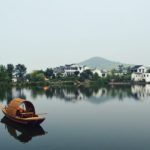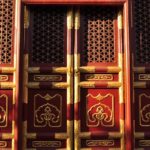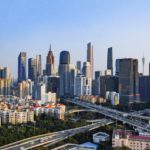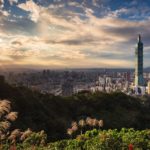China Travel Tips: Amanda’s Take on Health, Safety and Romance
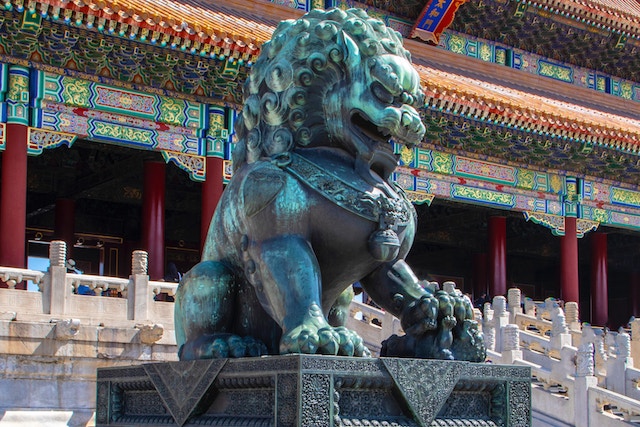
Traveling to China? Amanda Roberts gives you China travel tips about health, romance, women’s rights and safety:
China Travel Tips: Health
Feminine Hygienic Products in China: What’s available/what’s legal/where to buy them?
In China, pads and tampons are readily available, however, in more rural areas, it might be difficult to find the sizes/options you are used to. Chinese women generally have lighter, shorter periods than western women, so if you have a heavy flow, you might need to double-up. Also, most Chinese tampons do not come with applicators, so they can be harder to use. In major cities, though, finding pads and tampons that are more like what you will find in the west are easy to find.
Birth Control in China: What’s available/what’s legal/where to buy them?
Birth control pills are available over the counter in China, so you can buy them at any pharmacy without a prescription. They can run from 22-69 RMB per pack, depending on the brand. Condoms can also be purchased anywhere.
Breastfeeding in China: What are accepted places for women to breastfeed? Is it accepted to do so in public?
Breastfeeding is accepted and women are free to breastfeed whenever and wherever without being covered.
China Travel Tips: Romance
Dating Locals in China: What are the norms and traditions? What should women look out for?
Speaking very generally, Chinese men are very “traditional,” by which I mean they expect their wives to be subservient. This typically doesn’t jive well with expat women, women who are independent and adventurous enough to travel to a foreign country alone.
This is changing, and I do know some western women who have married local men, but it is still rare compared to how many western men marry Chinese women.
Is China LGBTQ-friendly?
In general, China is not an LGBTQ-friendly country, but attitudes are changing, especially in larger cities. I do know a few gay men and women in China, but it is more like an “open secret.” They might be open about it around their friends, but probably need to keep it hidden from their employers.
China Travel Tips: Women’s Place in Society
Women’s Rights in China: Do women have the same position in society as men? How can you tell?
China claims to be very progressive when it comes to women’s rights, but in daily life, Chinese women are certainly not equal to men. There are few women in leadership positions and it is extremely difficult for women with kids to balance work and family.
Local Women in China: What are some clear cultural differences between you and them?
I am far more outspoken than the women I work with. I also dress differently. They prefer short skirts and high-necked tops while I prefer long skirts and low-cut tops.
Women-Specific Environments in China: Are there places where only women are or are not allowed?
There are some jobs women don’t typically do, like hair dresser, and men and women usually have separate lives, like after dinner the men will go drink and play cards while women will go play mahjong, but there is no obvious segregation in Chinese society today.
Perception of Foreign Women in China: How do local men/women react to you when you say where you’re from?
Chinese people generally have a very favorable view of the west. They love Obama, American basketball and hip hop music, and American movies. However, there are some stereotypes to be aware of.
Many Chinese people think that all Russian women are prostitutes. And many men believe that all western women are sexually available all the times.
China Travel Tips: Safety
Transportation in China: Any that are safer/less safe for women to take?
Public transportation (taxis, buses, the subway) are generally safe for women to take, even alone. But always be aware of your surroundings.
Dangerous area/s in China: Any specifically for women?
There are no specifically dangerous places. I have lived in China for 5 years and have never been in danger, but I know other women who have been assaulted on a busy street in broad daylight. The truth is it is never “safe” for a woman anywhere in the world, so take precautions.
Clothing in China: What to wear/what not to wear?
China is a very multi-cultural country, so pretty much anything goes. Women can wear a bikini on the beach or a hijab in the city (mostly, hijabs are currently banned in Xinjiang). Women can wear dresses or pants or shorts or whatever. In general, low-cut tops are not preferred, but it is not something a woman would be punished for wearing.
China Travel: Tips for Women Travelers in China by Alexandra Ehrhardt
Four months have passed since I moved to China, and the initial culture shock has subsided. Now, I even prefer a Chinese squatter toilet to a Western one! Still, a few Chinese habits continue to stand out to me. Here’s what to expect when you visit:
Spitting
While walking around my city, Changsha, I discovered a small market. People hustled and bustled all around to find the best prices. Among the throngs of people, I swerved and dodged the crowds, attempting to take a picture or two.
Then, I looked up at the sky and down to my feet. Drops of what appeared to be water encircled my shoes. Was it raining? Nope. It turned out that the people walking, driving, and flitting past had been spitting.
Spitting is a common practice in China and happens everywhere you go. I have found bodily functions to be less of a taboo in China than they are in America.
Now, my friends and I make funny faces at each other when we witness someone on the bus spit on the ground and attempt to wipe it away with the soles of her or his shoes. Rather than taking absolute disgust in it, I find it to be humorous. I am accustomed to the spitting sounds because I was in China. More often than not, they don’t even register in my mind.
However, when they do, I find myself making up some sense of a cheer: “Yeah! You go man! Clear those sinuses! Way to clear that throat!” I giggle to myself and avoid the area of the evidence.
Lack of Personal Space
Be prepared to lose any sense of personal space when in China because this is a norm in China. This seems to be due to the number of people living here and the social culture.
Public transportation is a popular option for many Chinese; however, a bus can only fit so many people. Nevertheless, the bus driver and all occupants will try to fit one more person in no matter how packed it already is. Waiting for another bus going in the same direction might take hours! One time, we stuffed a bus with so many people that it broke down.
At the same time, the words “excuse me” are not commonly used. If someone needs to get around you, they walk past you and hit anything you happen to be carrying. I carry around a backpack, and I can’t count the number of times someone has slammed into it without an “I’m sorry.”
In one particular instance, I sat at a bus stop reading a book. I was engulfed in the text when a Chinese man walked up to me, stood less than three inches away, and asked where something was located. In fact, I jumped in my seat and took a minute to register that the man was asking me a question though I was clearly engaged in reading.
I directed him to the proper location, and finished reading the chapter of my book. Ironically, the chapter was about etiquette as demonstrated through the Chinese language.
Screaming into the Phone
No matter what time of day, Chinese people will answer their phone as though they are trying to wake the dead. Whether it is seven in the morning, one in the afternoon, or ten in the evening, the Chinese always answer the phone with an extremely loud “WEI!?”
One afternoon, a friend and I grabbed some lunch outside of our work place. Less than five minutes after sitting, a local entered the restaurant screaming, “WEI!” into his phone. When he didn’t receive a response, he continued to scream “WEI! WEI! WEI!!!” After four attempts, he hung up the phone. By that time, my lunchtime calm had dissipated.
This occurs everywhere. It is hard to escape the thundering “WEI!” no matter where you go. Often, I feel included in the conversation (although I do not understand it) since every syllable echoes throughout the space that the screaming stranger and I both share.
These are just a few Chinese habits that have stood out to me. The most common have become regular occurrences in my daily life here. My foreign friends and I collect stories of such habits and share them over meals or during the late night hours. They serve as reminders that where we live is so fascinating because it is so different from where we came.
China Travel: Tips for Women Travelers in China by Faye Zhang
When you think about Beijing, few images of this city might come to mind: dense population, high pollution, the Chinese capital and the Forbidden City. As one of China’s four ancient capitals, Beijing stands for both old and new. The city is constantly buzzing with noise, people, traffic and activities. Well, if you are looking for an adventurous trip (if you speak no Chinese), and actively looking for some culture shock (if you are not Chinese), this is your town.
Apart from the well known tourist places, Beijing offers a range of attractions, which might not be that famous, but will definitely win your heart with their unique charm.
1. Jinshang Park
This little charming park is right next to the Forbidden City, opposite to the exit of the Palace Museum. The
history of the Jingshan Park can be traced back to 1276, when the Yuan Dynasty was ruling the country and Beijing was first appointed as the capital of the middle kingdom.
History is present in every corner of the park. From the tree where the last Ming Dynasty emperor Ming Si Zong (1611 – 1644) hung himself for losing his country to the Manchus, to the memory of foreign troops invading Beijing city during Qing Dynasty period (1644-1912).
The most exciting part of the park is the spectacular 360 degree view that it offers of Beijing. On any given day, the view is always breathtaking. The central point of Beijing is also located in this park, right under the temple on the top of the hill.
*Bonus: the entrance fee of the park only costs RMB 2.
2. Summer Palace
Branded as a “masterpiece of Chinese landscape garden design” by UNESCO, the Summer Palace will take your breath away. Dominated by the Longevity Hill and Kunming Lake, the Summer Palace is covered by picturesque hilly landscapes and a serene lakeside.
Originally built during the Qing Dynasty in 1752, the “old” Summer Palace was burned down by the British and French armies during the Second Opium War. The restoration work began in 1900, and what you can see today is mostly the reconstructed palace.
*Bonus: the Summer Palace and the Botanic Garden are near the Fragrant Hill, located north-west of Beijing. You can visit all of these places in one day.
3. The Hutongs
Some call it the slum, some call it the actual Beijing. However you see this area, you must visit. Hutong is the
name for the traditional architecture type native to Beijing. It is now a combination of old and new, as many original buildings have been demolished.
The houses in Hutongs are called Si He Yuan (literally means four-walled compounds), where each Si He Yuan used to be occupied by one family. However, most of the Si He Yuan have more than one family living in there, and some of them have been refurnished, which have caused the prices to rise.
Nevertheless, you can experience the peacefulness of the traditional Chinese life the minute you step into the Hutong area. Nowadays, there are many cafes, bars and restaurants there, and their uniqueness and quality services will surprise you. Some will be overpriced.
*Bonus: You can rent a bicycle to explore the small alleyways without the disruptions of heavy traffic that you’ll experience on normal roads.
China Travel: Tips for Women Travelers in China by Faye Zhang
When you think about Beijing, few images of this city might come to mind: dense population, high pollution, the Chinese capital and the Forbidden City. As one of China’s four ancient capitals, Beijing stands for both old and new. The city is constantly buzzing with noise, people, traffic and activities. Well, if you are looking for an adventurous trip (if you speak no Chinese), and actively looking for some culture shock (if you are not Chinese), this is your town.
Apart from the well known tourist places, Beijing offers a range of attractions, which might not be that famous, but will definitely win your heart with their unique charm.
1. Jinshang Park
This little charming park is right next to the Forbidden City, opposite to the exit of the Palace Museum. The
history of the Jingshan Park can be traced back to 1276, when the Yuan Dynasty was ruling the country and Beijing was first appointed as the capital of the middle kingdom.
History is present in every corner of the park. From the tree where the last Ming Dynasty emperor Ming Si Zong (1611 – 1644) hung himself for losing his country to the Manchus, to the memory of foreign troops invading Beijing city during Qing Dynasty period (1644-1912).
The most exciting part of the park is the spectacular 360 degree view that it offers of Beijing. On any given day, the view is always breathtaking. The central point of Beijing is also located in this park, right under the temple on the top of the hill.
*Bonus: the entrance fee of the park only costs RMB 2.
2. Summer Palace
Branded as a “masterpiece of Chinese landscape garden design” by UNESCO, the Summer Palace will take your breath away. Dominated by the Longevity Hill and Kunming Lake, the Summer Palace is covered by picturesque hilly landscapes and a serene lakeside.
Originally built during the Qing Dynasty in 1752, the “old” Summer Palace was burned down by the British and French armies during the Second Opium War. The restoration work began in 1900, and what you can see today is mostly the reconstructed palace.
*Bonus: the Summer Palace and the Botanic Garden are near the Fragrant Hill, located north-west of Beijing. You can visit all of these places in one day.
3. The Hutongs
Some call it the slum, some call it the actual Beijing. However you see this area, you must visit. Hutong is the
name for the traditional architecture type native to Beijing. It is now a combination of old and new, as many original buildings have been demolished.
The houses in Hutongs are called Si He Yuan (literally means four-walled compounds), where each Si He Yuan used to be occupied by one family. However, most of the Si He Yuan have more than one family living in there, and some of them have been refurnished, which have caused the prices to rise.
Nevertheless, you can experience the peacefulness of the traditional Chinese life the minute you step into the Hutong area. Nowadays, there are many cafes, bars and restaurants there, and their uniqueness and quality services will surprise you. Some will be overpriced.
*Bonus: You can rent a bicycle to explore the small alleyways without the disruptions of heavy traffic that you’ll experience on normal roads.
4. Provincial Cuisines of China
This might sound like a strange idea, if someone is in Beijing, why would they look for food from other provinces? Strangely enough, you can easily find other provinces’ best food in this city. As the capital of China for the past eight centuries, Beijing set up provincial representative offices’ restaurants to present their best delicacies to the people of the capital.
Nowadays, you can visit these restaurants to taste the fine cuisines prepared by the finest chefs from all around the country.
*Bonus: there are 23 provinces in China!
5. Caochangdi
Very few people have heard of the Caochangdi Art District. It is the home of many modern Chinese art galleries but still has the old village area surrounding it. Step inside the district, and you will find both contemporary architectures that will capture your artistic heart.
The gallery area is quiet and peaceful, and you can enjoy a
coffee near any galleries. Outside the gallery area, the district is jammed with local village shops, restaurants and residential apartments.
*Bonus: most galleries offer free entry.
6. Non-Tourist Areas of The Great Wall
It is no secret that the Great Wall is a must visit when you come to Beijing. However, most travelers tend to go to the sections that are well-maintained and easy to hike around. The true hidden gems of the Great Wall are the sections that are not well-maintained and broken. The view of the mountains will definitely make you appreciate the natural beauty.
*Bonus: you can stay in one of the villages near the wall to experience the local village life. The villagers will serve you food for a fee.
4. Provincial Cuisines of China
This might sound like a strange idea, if someone is in Beijing, why would they look for food from other provinces? Strangely enough, you can easily find other provinces’ best food in this city. As the capital of China for the past eight centuries, Beijing set up provincial representative offices’ restaurants to present their best delicacies to the people of the capital.
Nowadays, you can visit these restaurants to taste the fine cuisines prepared by the finest chefs from all around the country.
*Bonus: there are 23 provinces in China!
5. Caochangdi
Very few people have heard of the Caochangdi Art District. It is the home of many modern Chinese art galleries but still has the old village area surrounding it. Step inside the district, and you will find both contemporary architectures that will capture your artistic heart.
The gallery area is quiet and peaceful, and you can enjoy a
coffee near any galleries. Outside the gallery area, the district is jammed with local village shops, restaurants and residential apartments.
*Bonus: most galleries offer free entry.
6. Non-Tourist Areas of The Great Wall
It is no secret that the Great Wall is a must visit when you come to Beijing. However, most travelers tend to go to the sections that are well-maintained and easy to hike around. The true hidden gems of the Great Wall are the sections that are not well-maintained and broken. The view of the mountains will definitely make you appreciate the natural beauty.
*Bonus: you can stay in one of the villages near the wall to experience the local village life. The villagers will serve you food for a fee.
China Travel Tips: Amanda’s Take on Health, Safety and Romance
Related Reading
Have you traveled to China? What were your impressions? We’d love to know if there’s any important information you recommend adding to this list. Email us at editor@pinkpangea.com for information about sharing your experience and advice with the Pink Pangea community. We can’t wait to hear from you.
China Travel Tips: Amanda’s Take on Health, Safety and Romance photo credit: unsplash.com


